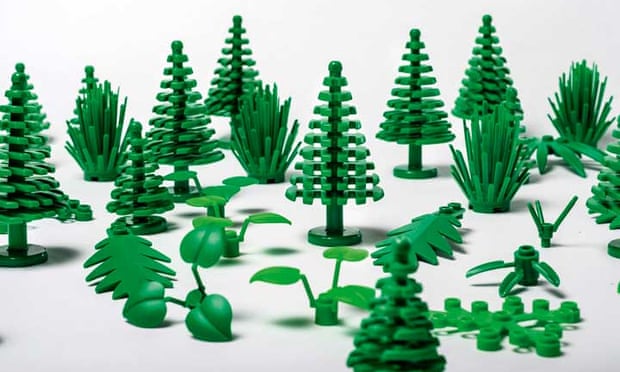Range including leaves, bushes and trees made entirely from plant-based plastic sourced from sugar cane will be available later this year

Pieces such as leaves, bushes and trees will be made entirely from plant-based plastic
The first Lego pieces made from plant-based plastic sourced from sugar cane will go on sale this year, the company has announced.
The 85-year-old Danish toymaker said production has begun on a range of Lego botanical elements or pieces such as leaves, bushes and trees, made entirely from plant-based plastic. They will start appearing in Lego box sets with bricks and mini-figures later this year.
The move is part of Lego’s commitment to use more sustainable materials in its core products - including its eponymous bricks - and packaging by 2030. Its aim is to find sustainable sources to replace its current fossil fuel-based raw materials, as plastic can also be made from sustainable or bio-based raw materials.
The new-style Lego elements are made from polyethylene – a soft, durable and flexible plastic that can now be made with ethanol extracted from sugar cane material and, Lego claims, is as durable as conventional plastic. As a bio-plastic, it can be recycled many times, though it is unlikely to be 100% biodegradable.
The material has been tested to ensure it meets Lego’s own high standards as well as consumer expectations. However the polyethylene elements will amount to only 1-2% of the total amount of plastic elements produced by the family-owned toymaker, one of the world’s most popular brands.
“At Lego we want to make a positive impact on the world around us, and are working hard to make great play products for children using sustainable materials” said Tim Brooks, vice-president of environmental responsibility at the Lego Group. “This is a great first step in our ambitious commitment of making all Lego bricks using sustainable materials.”
Lego bricks have been made with a strong, oil-based plastic known as acrylonitrile butadiene styrene since 1963, although other pieces in its sets do not need such strong and hard materials. The company recommends that bricks no longer wanted are passed on to others or donated to charity shops or, if worn and no longer suitable for play, recycled as “other plastic.”
Lego has joined forces with WWF to support and build demand for sustainably sourced plastic, and has joined the Bioplastic Feedstock Alliance (BFA) to ensure fully sustainable sourcing of raw material for the bioplastics industry.
Lego boasts of the durability of its bricks, with its unique design guaranteeing that two bricks produced decades apart can still fit together. It has set a target of 2030 to reach zero waste in operations, and last year introduced sustainable paper pulp trays for its Lego advent calendar, to reduce plastic waste going to landfill.

No comments:
Post a Comment